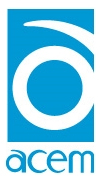 Motorcycle Manufacturers ask EU Legislators for realism in adopting new technical regulation
Motorcycle Manufacturers ask EU Legislators for realism in adopting new technical regulation
Facing a stifling domestic market, European Motorcycle manufacturers ask decision makers to take stock of economic conditions in the EU. Priorities are: reasonable type approval framework, support to worldwide harmonisation and reduction of barriers to trade in foreign markets.
Right To Ride: We have highlighted some important points below made by ACEM which we agree with in principle with regards to:
The introduction of technical regulations, to accede as much as possible to the UN ECE framework and for new regulations that Europe should first seek adoption at UN level. Also ACEM’s statement calling for the necessity to re-evaluate certain aspects of the type-approval regulation and that the introduction of some of the requirements must be adjusted and phased in to prevent PTW manufacturers’ costs from rising beyond consumer acceptance.
Original Source: ACEM, the European Motorcycle Industry Association
ACEM, the European Motorcycle Industry Association, called on the European Union to actively support its domestic manufacturing industries rather than burdening them with disproportionate regulations.
During its General Assembly in Vienna, hosted by FFö, the Austrian Vehicle Industry Association, Hendrik von Kuenheim, ACEM President and Managing Director of BMW-Motorrad, said that the European Powered Two-Wheeler Industry should be placed under the concept of moratorium for automotive legislation expressed by the European Commission in a communication published on March 8th.
In 2011, four years into a relentless economic crisis, the Powered Two-Wheeler sector suffered its lowest sales figures of the decade with registrations down by another 9.5%, totalling only 1.7 million sold units over the last year. The crisis has wiped off almost 40% of annual sales since 2007. Provisional data indicate a decline of 15% for the first two months of 2012 compared to the previous year.
As a result, companies have had to reduce their production with negative effects on employment. Due to the impact of the economic crisis – especially in traditionally important PTW markets, such as Spain, Greece, and Italy – it is unclear whether the return to pre-crisis market levels will ever be possible.
In such adverse conditions affecting its domestic market, the EU Motorcycle Industry could better survive and maintain production activities within Europe if the EU pushed for the creation of trade opportunities in promising foreign markets.
Import duties and non-tariff barriers prevent high-end European motorcycles from accessing Southeast Asian and South American markets, which represent about 80% of the global market for Powered Two Wheelers.
“Europe needs to push for equal access to global markets, with the same opportunities for all players involved”, said Mr von Kuenheim.
Meanwhile, to exploit the potential markets accessible to EU manufacturers, the harmonization of technical regulations among regions/countries is of utmost importance. To this end, Europe should accede as much as possible to the UN ECE framework. For new regulations, Europe’s should first seek adoption at UN level before implementing it on its territory. Developing regulations only for Europe does not represent any benefit for EU manufacturers, just additional type-approval burden and costs.
ACEM agrees with the high level objectives pursued by the Commission, considers that the regulation will offer some opportunities, notably in terms of level playing field, but believes that some regulatory issues are not proportionate to the size and capabilities of this specific industry.
ACEM argues that a strong EU industrial policy should courageously and objectively evaluate if the envisioned regulation on type-approval of two-wheeler, three-wheeler and quadricycles currently under discussion by the co-legislators is proportionate, cost/effective and if it will benefit the PTW industry in Europe. This regulation will form the backbone of EU type approval for the coming decade, and beyond.
Quote
Hendrik von Kuenheim, ACEM President and Managing Director of BMW-Motorrad stated: “A re-evaluation of certain aspects of the type-approval regulation is necessary. In our view the concept of moratorium expressed by Vice-President Tajani in its communication of March 8th stresses this need. The introduction of some of the requirements must be adjusted and phased in to prevent PTW manufacturers’ costs from rising beyond consumer acceptance for the sake of the sustainability of European production plants.
We invite legislators to perform a reality-check considering that the size and capabilities of this specific industry may not be up to their proposed goals”.
Information
On October 4th 2010 the European Commission published a long anticipated proposal on new type-approval of L-category vehicles (COM 2010/542). This proposal makes provisions on many different safety and environmental requirements for a wide range of vehicles such as two- or three-wheel powered cycles, mopeds, motorcycles with and without a side-car, tricycles, on-road quads and mini-cars. The regulation is currently under discussion in the European Parliament and Council. First Reading vote in the European Parliament is foreseen for the July Plenary Session.
About ACEM
ACEM, the Motorcycle Industry in Europe, is the professional body representing the interests and combined skills of 13 powered two wheelers (PTWs) manufacturers producing more than 30 brands, and 15 national associations out of 13 European countries, employing over 150.000 people. The aggregated turnover of the PTW sector (manufacturing, plus upstream and downstream activities) amounted to Euro 34 billion in 2008. Manufacturers alone account for Euro 7 billion. The members of ACEM account for 90% of the production and up to 80% of the European powered two-wheeler market. ACEM also represents main manufacturers of tricycles and quadricycles.
For more information about ACEM visit www.acem.eu
.


ACEM (motorcycle industry) have called for a moratorium – which the EU Vice Commissioner Tajani has proposed for the automotive industry with regards to the proposed regulations.
On that basis and on the basis that the member states are not very happy with the so called delegated acts, could there be a real possibility that the whole proposal will be shelved?